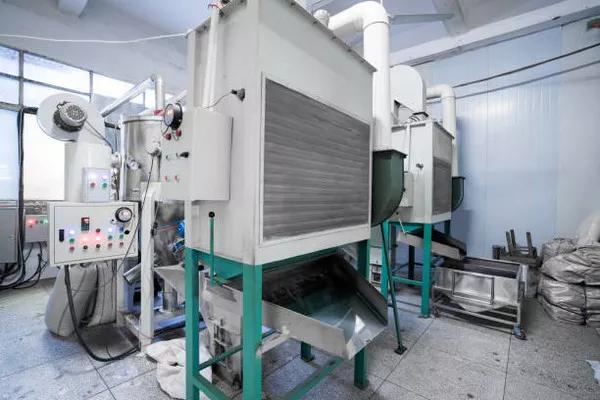Generators are invaluable assets, providing backup power during outages and ensuring continuity in critical operations. Just like any other machinery, regular maintenance is essential to keep generators running smoothly and efficiently. Among the crucial maintenance tasks, oil changes stand out as a fundamental practice to maintain peak performance and longevity. However, determining the optimal frequency for oil changes can be perplexing. In this comprehensive guide, we delve into the factors influencing oil change intervals for generators and provide actionable insights to help users make informed decisions.
Understanding the Role of Oil in Generator Performance:
Oil plays a pivotal role in the operation of generators by lubricating moving parts, reducing friction, dissipating heat, and preventing corrosion. Moreover, it acts as a cleaning agent, trapping contaminants and preventing them from damaging internal components. Over time, however, oil undergoes degradation due to exposure to high temperatures, contaminants, and mechanical stress, leading to a decline in its lubricating properties.
Factors Influencing Oil Change Intervals:
Several factors influence the frequency at which oil should be changed in generators:
Generator Type and Usage: The type of generator and its usage pattern significantly impact oil change intervals. Standby generators, which operate intermittently during power outages, may require less frequent oil changes compared to generators used for continuous or heavy-duty applications.
Operating Conditions: Generators operating in harsh environments or extreme temperatures may require more frequent oil changes. Dusty or humid conditions, for instance, accelerate oil degradation and increase the likelihood of contamination.
Oil Quality and Type: The quality and type of oil used in the generator play a crucial role in determining its longevity and performance. High-quality synthetic oils typically offer better resistance to thermal breakdown and maintain their viscosity over a more extended period compared to conventional mineral oils.
Manufacturer Recommendations: Manufacturers often provide specific guidelines regarding oil change intervals based on extensive testing and engineering expertise. Adhering to these recommendations ensures optimal performance and preserves warranty coverage.
Determining the Optimal Oil Change Interval:
While manufacturer recommendations serve as a valuable starting point, several additional factors should be considered to determine the optimal oil change interval for your generator:
Oil Analysis: Conducting regular oil analysis provides valuable insights into the condition of the oil and the internal components of the generator. By monitoring key indicators such as viscosity, acidity, and contamination levels, users can assess the effectiveness of the oil and make informed decisions regarding oil change intervals.
Visual Inspection: Regular visual inspection of the oil and the generator’s internal components can reveal signs of degradation or contamination. Milky or discolored oil, metallic particles in the oil, or unusual odors are indicators that an oil change may be necessary.
Usage Patterns and Environmental Conditions: Consider the frequency of generator usage and the prevailing environmental conditions when determining oil change intervals. Heavy usage or exposure to harsh conditions may necessitate more frequent oil changes to maintain optimal performance.
Oil Change Kits and Monitoring Systems: Some generators are equipped with oil change kits or monitoring systems that provide real-time data on oil condition and performance. These systems can automatically schedule oil changes based on usage patterns and oil analysis results, optimizing maintenance efforts and minimizing downtime.
Best Practices for Oil Change Maintenance:
In addition to determining the optimal oil change interval, adhering to best practices for oil change maintenance is essential to maximize the effectiveness of the process:
Follow Manufacturer Guidelines: Always refer to the manufacturer’s guidelines and recommendations regarding oil type, viscosity, and change intervals. Deviating from these recommendations can compromise generator performance and void warranty coverage.
Use High-Quality Oil: Invest in high-quality oils specifically formulated for generator applications. Synthetic oils, in particular, offer superior performance and longevity compared to conventional mineral oils.
Proper Oil Drainage and Refilling: Ensure thorough drainage of old oil during oil changes to remove contaminants and impurities. Use a clean funnel and containers to prevent contamination during the refilling process.
Filter Replacement: In addition to changing the oil, regularly replace the oil filter according to manufacturer recommendations. A clogged or dirty oil filter can impede oil flowand compromise engine performance.
Dispose of Used Oil Properly: Dispose of used oil in accordance with local regulations and environmental guidelines. Many auto parts stores and recycling centers accept used oil for proper disposal and recycling.
See also How Long Can A Whole Home Generator Run
Conclusion:
Regular oil changes are essential for maintaining the performance, reliability, and longevity of generator systems. By considering factors such as generator type, operating conditions, oil quality, and manufacturer recommendations, users can determine the optimal oil change interval for their specific application. Incorporating oil analysis, visual inspection, and advanced monitoring systems into maintenance practices further enhances the effectiveness of oil change maintenance, ensuring uninterrupted operation and maximum efficiency. By following best practices and adhering to manufacturer guidelines, users can maximize the value and utility of their generator systems for years to come.

